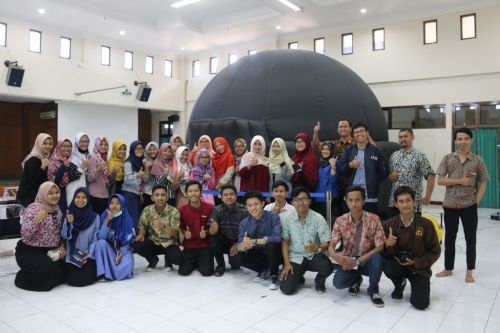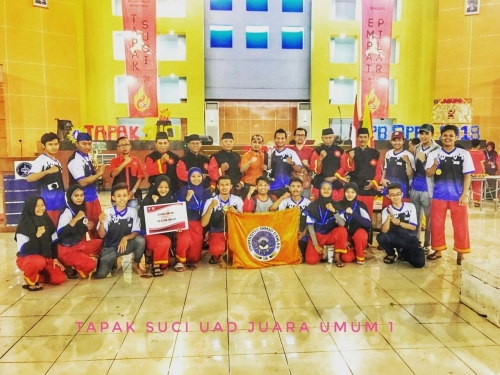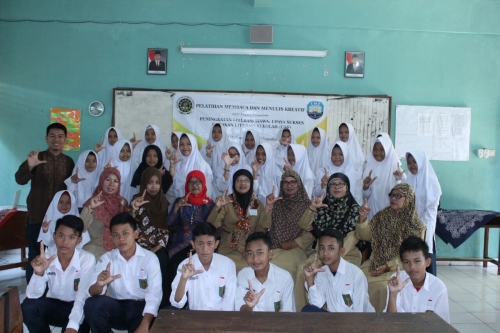LAPAN Equips UAD Student with Astronomy
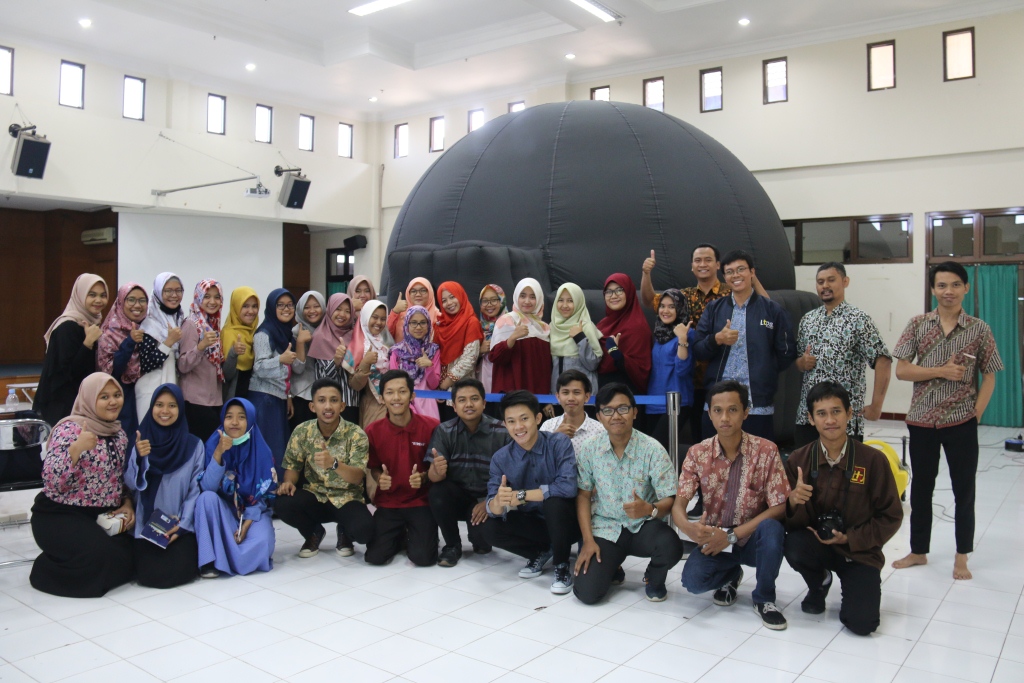
Eko Nursulistyo, M.Pd., a lecturer of Physics Education explained that this training aimed to improve the students’ astronomy skills. In addition, students will get Companion Certificate (SKPI) which can be used after they graduate.
"We cooperate with LAPAN to equip students with planetarium management skills. On the other hand, we also provide knowledge about light pollution, the ways to detect light pollution, and data management," explained Eko.
On the other hand, Drs. Gunawan Admiranto, a solar physics researcher from LAPAN revealed that this activity was one of LAPAN functions fulfillment to provide education to the public.
"We provide education to students in order for them to spread it to the society. Therefore, it does not stop at them. In this training, we also provide mini planetarium with a maximum capacity of 15 people that can be operated by students," he said when interviewed at the auditorium of campus 2 UAD on Jln. Pramuka 42, Yogyakarta.
Gunawan added that the most important thing of this training was about light pollution. He explained that, in the long term, light pollution could affect energy, health, and environment.
"Light pollution does not only obstruct our view to the outer space. In the long-term, it will also affect energy security, human health, and environmental changes. Light pollution will change the period of humans and animals being awake. "
He gave some examples, like the rarely seen fireflies, bats, and animals of the same kind. Furthermore, the reproduction of turtles was also disrupted by light pollution. The pollution causes light to last for 24 hours, half is from the sun and the rest is of lamp lights.
Currently, light pollution is considered a fairly serious problem given its impact on the life cycle of living things. Although difficult to handle, this problem must be solved by all parties. The simplest thing to do is to turn off unnecessary lights and not to point the light upward. (ard)
